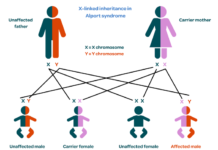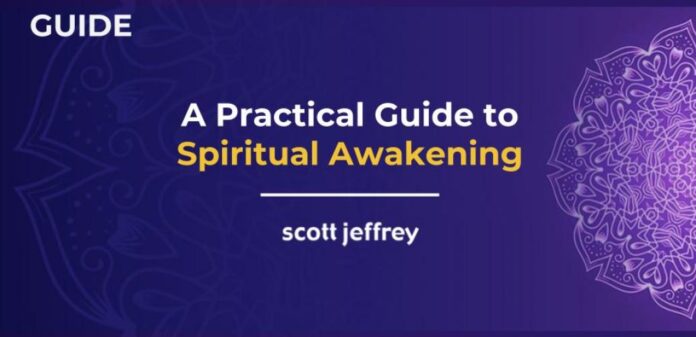True Religion
For ages, religion has been a cornerstone of human civilization, acting as a road map for those looking for meaning, morality, and spiritual fulfilment. However, different religious interpretations and manifestations have arisen throughout history, giving rise to a variety of belief systems and practises. In the middle of this variety, the idea of “true religion” manifests as a search for authenticity and a true relationship with the divine. In this essay, the idea of true religion is examined, along with its many facets, the search of spiritual authenticity, and the significance of firsthand knowledge and insight.
SPIRITUALITY: MEANING & CONCEPT

Defining True Religion:
True religion is a relative concept that varies from person to person depending on their cultural, societal, and private situations. It explores the core of one’s relationship with the sacred or the divine, beyond particular religious ideas or practises. Sincerity, genuine faith, and an actual relationship with a higher power or transcendent reality are characteristics of true religion.
Spiritual Authenticity:
The quest of spiritual authenticity is emphasised by true religion, which calls on followers to interact with their faith in an honest and significant way. It encourages people to go deeper into the core of their ideas, values, and experiences and goes beyond merely adhering to religious customs on the surface. To cultivate an authentic and meaningful connection with the divine, authenticity entails lining one’s ideas, deeds, and intentions up with the tenets of their faith.
Personal Experience and Understanding:
True religion recognises the value of individual insight and experience in questions of faith. While religious literature, concepts, and teachings offer helpful advice, they should be supplemented by introspection, thought, and the development of a personal connection with God. The pursuit of personal discovery and insight is encouraged by true religion, which enables people to forge a deeper and more sincere spiritual bond.
Beyond Dogma and Ritual:
True religion emphasises the underlying concepts and values that tie together many religious traditions, beyond the constraints of dogma and ceremony. It acknowledges that while religious practises might serve as a means of expressing one’s spirituality, they shouldn’t obscure the core principles of a belief. True religion encourages an open-minded and accepting mindset while highlighting the connection between human spirituality and other faiths.
The Role of Compassion and Service:
A defining characteristic of true religion is the cultivation of compassion and the commitment to service. Genuine faith extends beyond individual spiritual growth and encourages believers to manifest their beliefs through acts of kindness, altruism, and social responsibility. True religion inspires individuals to contribute to the well-being of others, fostering a harmonious and just society.
Inner Transformation:
True religion recognizes that religious beliefs and practices should not merely be superficial or performative. Instead, it emphasizes the transformative power of spirituality on an individual’s inner being. True religion encourages self-reflection, self-improvement, and the cultivation of virtues such as love, compassion, humility, and forgiveness. The focus is on nurturing a spiritual journey that brings about positive change in one’s character and behavior.
Seeking Truth and Wisdom:
True religion promotes the pursuit of truth and wisdom, acknowledging that spiritual understanding is an ongoing and evolving process. It encourages individuals to engage in critical thinking, intellectual inquiry, and the exploration of different philosophical and theological perspectives. Rather than relying solely on blind faith, true religion embraces knowledge and understanding as essential components of a meaningful spiritual journey.
Embracing Diversity and Unity:
True religion recognizes the beauty and value of religious diversity while emphasizing the underlying unity of human spirituality. It fosters respect and acceptance for different religious traditions, promoting interfaith dialogue and cooperation. True religion encourages individuals to transcend sectarianism, prejudice, and exclusivity, and instead, embrace the shared essence of human spirituality that transcends cultural and religious boundaries.
Ethical Living:
True religion places great importance on ethical living and moral conduct. It highlights the inseparable link between spirituality and ethical behavior, emphasizing the need to align one’s actions with the principles and values of their faith. True religion inspires individuals to live a life of integrity, honesty, justice, and compassion, recognizing that genuine spirituality should manifest in one’s daily interactions and contributions to society.
Personal Responsibility and Accountability:
True religion encourages individuals to take personal responsibility for their spiritual growth and development. It promotes self-discipline, self-examination, and self-accountability, recognizing that one’s relationship with the divine is a deeply personal journey. True religion empowers individuals to actively participate in their spiritual lives, seeking guidance from religious authorities, but also relying on personal introspection, prayer, meditation, and self-reflection to deepen their connection with the divine.
Conclusion
The search of true religion prioritises the goal of compassionate action, spiritual honesty, and a sincere and genuine connection with the divine. Although there are many different interpretations and expressions of religion, the core of true religion is the pursuit of spiritual authenticity and the development of an intense spiritual bond. Individuals can start on a transformative path towards true religion and discover meaning, purpose, and fulfilment in their spiritual life by embracing sincerity, personal understanding, and a dedication to service.







































